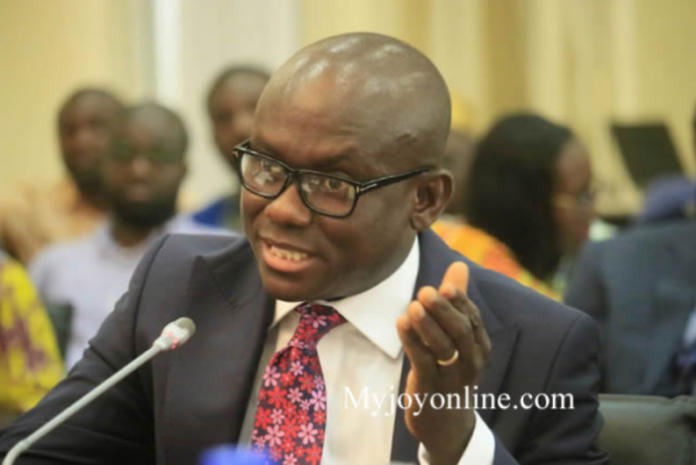The Attorney-General (A-G) and Minister of Justice, Godfred Yeboah Dame, has gone to court to stop an Australian mining firm, Cassius Mining Limited, from pursuing an international arbitration seeking $300 million compensation from the Government of Ghana (GoG).
Cassius has been fighting Ghana in international arbitration forums since February this year, seeking compensation over what it claimed was unfair treatment and breaches of mining laws by the GoG’s failure to extend the term of the company’s Prospecting Licence Agreement (PLA), after exercising its contractual right of extension.
However, in an application filed at the Commercial Division of the Accra High Court, the A-G urged the court to restrain Cassius Mining from going for international arbitration but rather avail itself of an ongoing arbitration at the Ghana Arbitration Centre (GAC) over the same dispute.
Arbitration should be in Ghana
It is the case of the A-G that per the PLA, any dispute between the mining firm and the GoG must be resolved by arbitration in Ghana in accordance with the Alternative Dispute Resolution Act, 2010 (Act 798) and not by an international arbitration panel.
The A-G filed the application at the High Court in Accra following a new international arbitration initiated by Cassius Mining in which the company sought to have the arbitration in London, UK, under the United Nations Commission on International Trade Law (UNCITRAL) Arbitration Rules.
Such a move by Cassius Mining, Mr Dame argued, was a clear violation of the PLA, Act 798 and virtually ousted the jurisdiction of the High Court of Ghana from supervising the arbitration process as stipulated by Act 798, and rather placed such jurisdiction over the matter in the High Court of England and Wales.
“The recourse by respondent to international arbitration is gross abuse of process and most oppressive of applicant herein as, in Clause 21 of the Prospecting Licence Agreement, the parties have agreed that their dispute shall be referred to arbitration in accordance with the Alternative Dispute Resolution Act, 2010 (Act 798).
“Nowhere have the parties agreed that their disputes would be resolved under the UNCITRAL Arbitration Rules,” the A-G submitted before the court.
Forum-shopping
The Principal Legal Advisor to the government, therefore, urged the High Court in Accra to restrain Cassius Mining from embarking on any international arbitration, as such a move was not only against the PLA and Act 798, but also amounted to forum-shopping, which would saddle the GoG with unnecessary cost and expenses.
“Unless restrained by this honourable court, the respondent (Cassius Mining) will continue searching for an international forum that will support the breach of Clause 21 of the Prospecting Licence Agreement and undermine the ongoing proceedings before the Ghana Arbitration Centre.
“That this is a fit and proper occasion on which this honourable court ought to exercise its supervisory jurisdiction over the pending arbitration proceedings between the two parties hereto and grant an interim injunction restraining the respondent from embarking on plain illegality,” the A-G added.
The application for interim injunction by the A-G is in conformity with Section 39 of Act 798 which clothes the High Court with the jurisdiction to grant interim injunction in arbitration proceedings.
Challenge
This is not the first time the A-G is challenging Cassius Mining’s decision to go for international arbitration over the dispute.
In March this year, the A-G successfully challenged the jurisdiction of the Permanent Court of Arbitration (PCA) in The Hague, Netherlands, to hear the dispute after Cassius Mining had filed an arbitration under the UNCITRAL Arbitration Rules before the PCA.
Raising a preliminary legal objection, Mr Dame argued that the GoG had not consented to the PCA administrating the arbitration and also per the PLA, any dispute between the two parties must be resolved in Ghana in accordance with Act 798.
The PCA upheld the objection by Mr Dame, declined jurisdiction over the dispute and refused to constitute a panel to hear the dispute.
“The PCA Secretary-General may act as appointing authority under the UNCITRAL Rules if all parties so agree. The PCA understands that no such agreement has been reached in this matter,” the PCA said in a letter dated March 20 this year to the parties.
Background
Per court records, on October 12, 2016, Cassius Mining Limited applied for a prospecting mining licence to explore minerals in Talensi in the Upper East Region.
On December 28, 2016, the GoG, through the then Minister of Lands and Natural Resources, granted the mining firm a prospecting licence for two years, which was to expire in December 2018.
On June 14, 2018, Cassius Mining alleged that the GoG had failed to uphold its part of the contract by not renewing the prospecting licence which was set to expire in December 2018.
The mining firm, therefore, dragged the GoG to the Ghana Arbitration Centre (GAC) on June 26, 2018, in accordance with the dispute settlement clause of the Prospecting Licence Agreement, which enjoins the parties to settle their disputes in Ghana in accordance with Act 798.
An arbitral panel which was comprised Emmanuel Amofa, Kizito Beyuo and Professor Albert Fiadjoe, was formed to hear and determine the dispute. However, per the court documents, on January 23, 2019, Cassius Mining applied for a stay of proceedings for three months in order to explore settlement with the GoG.
After the expiration of the three months, the mining firm applied for an extension which was granted but nothing was heard about the arbitration, although it was still pending.
In February 2023, Cassius instituted fresh arbitration at the PCA, which declined to hear the matter following the objection raised by the A-G.
ALSO READ:

